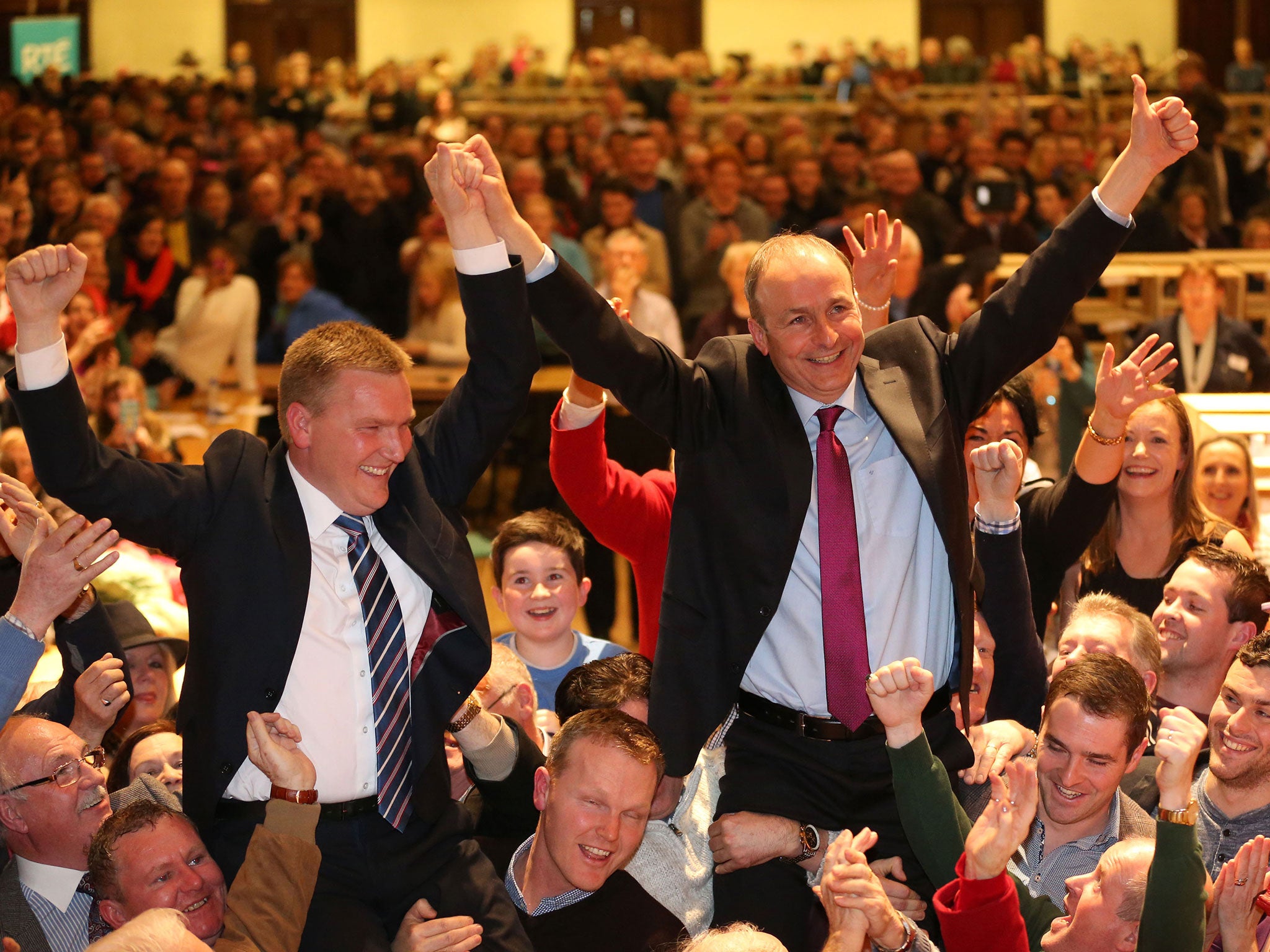Irish voters facing another election as no clear winner emerges
Between them, rival parties Fianna Fail and Fine Gael have led every Irish government since independence and have never shared power with each other.

Politicians in Ireland are divided over whether the country’s next government should be a historic alliance of age-old foes – or whether there should be a second election.
With two-thirds of winners declared in the race to fill a 158-member parliament, the new political landscape looked like the most fractured in Irish history. The two perennial centrist heavyweights – governing Fine Gael and opposition Fianna Fail – remain virtually neck and neck, with Fine Gael winners of 31 parliamentary seats and Fianna Fail 30.
Analysts forecast that Fine Gael would finish a few seats stronger than the party’s political nemesis Fianna Fail. But neither would be able to form a parliamentary majority with any other single party, only with each other.
Voters disgusted by Ireland’s 2008 economic collapse, the international bailout in 2010 and years of austerity deemed necessary to repair the damage threw their support in Friday’s election to a dizzying array of anti-government voices. For the first time in Irish electoral history, the combined popular vote for Fianna Fail and Fine Gael slid below 50 per cent.

The two parties evolved from opposite sides of the cut-throat civil war that followed Ireland’s 1922 independence from Britain. Between them, they have led every Irish government and have never shared power with each other.
But neither side has ruled out forming a partnership if government stability requires this. Few workable alternatives look available in a parliament increasingly crowded with untested micro-parties and maverick independents hostile to both establishment parties.
The nationalist Sinn Fein party finished in third place with a disappointing 13.8 per cent share of the popular vote. But both Fine Gael and Fianna Fail have ruled out co-operation, citing Sinn Fein’s ties to the outlawed IRA.
Leading figures in both Fianna Fail and Fine Gael said they cannot see how two parties so long committed to tearing each other down can form a united cabinet that survives for months, never mind five years. They forecast that coalition talks could take weeks to get going, and failure would force Ireland to hold a second election. Ireland hasn’t experienced back-to-back elections amid a finely balanced parliament since 1982.
“There’s a sense of bewilderment first of all. We’re a long way from sitting down together and talking about what our next options are,” said Regina Doherty, who was re-elected for Fine Gael in Meath north-west of Dublin.
Recounts of disputed results in Ireland’s complex, multi-round system of proportional representation mean that all winners won’t be confirmed until Monday at the earliest.
AP
Join our commenting forum
Join thought-provoking conversations, follow other Independent readers and see their replies
Comments